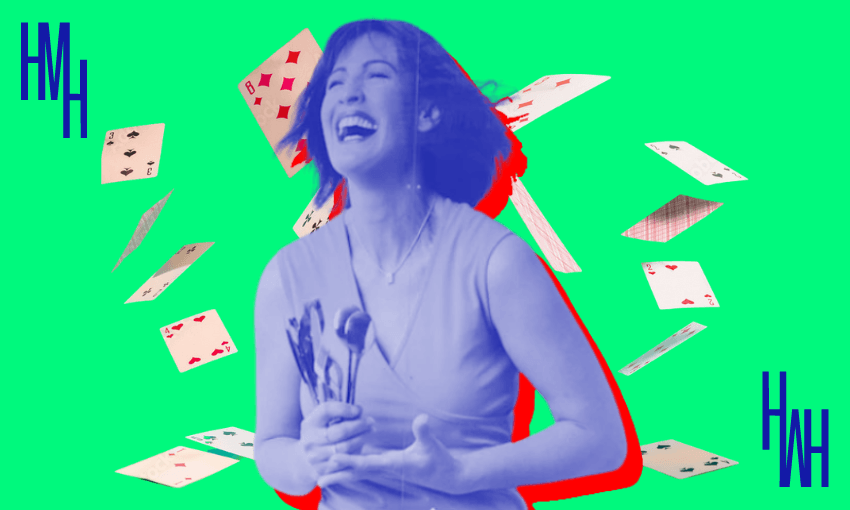Sick of screen time and snack packs? Then get your kids to go hunt some whales.
My feet move, like a robot, to the pantry. The chips are on the second shelf: ready-salted for the boy, salt & vinegar for the girl. Don’t mix them up or they’ll reject the whole plate. Open the fridge and cut cheese to add to the crackers. Add some Shapes, some popcorn. Is that too many fried, salty things? What would Nadia say?
The thoughts continue. Am I a bad parent? Are we still in lockdown? Where have all the chocolate biscuits gone? Oh, that’s right: I stress-ate them. Hide the packaging from the kids or they’ll complain. Another question: When will these school holidays fucking end?
These are all thoughts that every parent — especially those living in Auckland — are asking themselves right now. After a blessed, hot, mostly Covid-19-free summer break, parents are returning to their homes, their jobs, and their lives. Children, however, are not. School doesn’t return for weeks. My son doesn’t go back to his classroom until February 8. With the threat of omicron looming, I can’t see that far ahead.
In Tāmaki Makaurau, most of the second half of last year was spent in various stages of lockdown. Home schooling was sporadic, and when schools did re-open, it was a day or two a week. Right now, returning to the same patterns within the same four walls feels like more of the same. It’s too much. It’s The Neverending Story of school holidays, a constant, endless parade of screen time and snack packs, with no Falkor to save us.
That was going to be the point of this story, another missive from a stressed out parent sick of paying his son’s Xbox subscription fees. Yes, I’ll take you to the pools once I send this email. Yes, I’ll help you make another pot of buttery pasta once I respond to this Slack message. Send help. Send grandparents. Send anyone, or anything. Please.
The answer landed quite by chance. During a recent trip to Auckland Zoo, my daughter spotted something fishy: a colourful whale tail poking out of the ground. She snapped a photo, came home and told me about it. I — quite literally — shrieked.
Is it … could it be … a saviour for these interminable school holidays? “You’ll be saved,” promises Livia Esterhazy. “The last few weeks will whizz by.”
It’s true. Esterhazy is responsible not just for the zoo’s whale tale, but for 79 others placed around Auckland. It’s all part of Whale Tales, a public art trail involving huge tails painted by famous artists. They’re placed around Auckland for people to find, and log, via an app. It was supposed to happen last year, but lockdown postponed it. Now it’s here, and it’s a beautiful sight.
For anyone who doesn’t remember the last time this happened with owls, a quick recap: Whale Tales is like a real-life treasure hunt. On every whale tail is a number. To collect them all, you’ll need to download an app, then head out, find each tail, and check them off. They’re all over the city: in the botanical gardens, out at Piha, over on Waiheke, in the zoo. There’s one in my home suburb, Te Atatū.
Kids love it. Our kids get obsessed by it. Last Christmas in Christchurch, the search for giant painted penguins dominated our holiday. The kids would not rest until we had found them all. It was a great way to see the city, find spots we wouldn’t otherwise visit, and keep the kids entertained. In Auckland, it will undoubtedly do the same.
When I called Esterhazy, I wanted to congratulate her for saving my school holidays. But WWF New Zealand’s CEO tells me there’s another, much bigger and more serious point to the whale tails. Each represents a Bryde’s (it’s pronounced “Broo-dus”) whale, a native of Auckland’s Hauraki Gulf. “Not many Aucklanders know they’ve got a whale in their own back yard,” she says.
They’re endangered, with just 135 left. Those dwindling numbers are threatened by plastics, food supply, boat strike, climate change and over-fishing. “They’re eating a lot of zooplankton, which is … filled with microplastics,” says Esterhazy. “You can imagine what’s happening to them internally.”
None of that sounds good. It’s not. “A healthy whale is an indicator of a healthy ocean,” she says. “We know the species isn’t healthy, and the Hauraki Gulf isn’t healthy. We’ve got to reverse this.” How? One way is money: once Whale Tails ends, they’ll be auctioned off, and proceeds will be used to help save the whales.
But educating everyday Kiwis is also important. “We’re bringing everything to life in a nice, enjoyable way,” says Esterhazy. “Hopefully people learn as they go, open their eyes, open their hearts and realise that the beautiful shiny body of water that they see and they interact with … it’s not healthy.”
Find a tail, save a whale. It’s either that, or it’s back to making snack packs. I’m choosing the whales.
Whale Tales kicks off today. For more information, visit whaletales2022.org.



